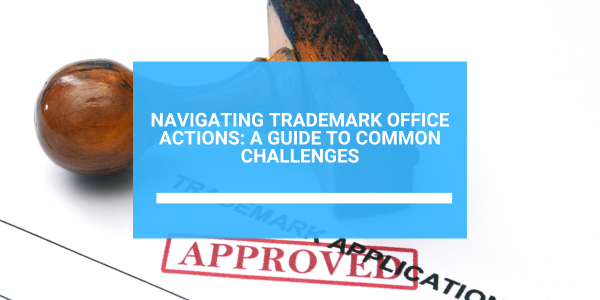Legal Insight: Top 5 Legal FAQs for New Business Owners
Starting a business is as much a legal endeavor as it is a commercial one. New business owners often find themselves grappling with legal intricacies. Over the years, we have worked with hundreds of new business owners. Although the questions can be diverse, we tend to see a common theme during the first year of business. So, here are the top five legal questions that surface during that time, with answers to steer you in the right direction.*
1. What legal aspects should I consider when naming my business?
This is a common question and a good one. Selecting a business name goes beyond branding; it has legal implications. First, it is advisable to ensure the name is not already trademarked and is compliant with state naming requirements. By conducting a thorough search of the USPTO and state directories, you can prevent trademark infringement issues, which can lead to costly disputes. If the name is available, trademarking your name guarantees exclusive rights, preventing others from capitalizing on your brand's reputation. It's also important to consider the impact of a name in different cultures and languages to avoid unintended negative connotations. Second, securing the domain name should be next on the list. All too many times we have witnessed people start a business without checking the availability of the domain address, causing a potential headache and large expense down the road.
2. How important are contracts for my business?
Contracts are the backbone of your business operations. Regardless of the type of business you run, contracts will be an integral part of your first year in business. Your contracts should outline clear terms and conditions for your relationships with clients, suppliers, and partners. A well-drafted contract can protect your business interests, minimize risk, and clarify expectations. Ignoring contract specifics can leave your business vulnerable to misunderstandings and legal challenges. They should detail the rights and obligations of all parties involved, covering scenarios from breach of contract to termination conditions. An overlooked aspect is the 'Force Majeure' clause, which can protect businesses from unforeseeable events that prevent fulfillment of the contract.
3. Do I need to worry about compliance with laws from the start?
Compliance is critical. From employment laws to industry and jurisdiction-specific regulations, understanding and adhering to legal requirements is essential for long-term success. Failure to comply can result in penalties, fines, or more severe legal repercussions. This is why it is important to have a business lawyer in your corner. Early investment in legal compliance can prevent significant issues down the line. Staying on top of compliance is like keeping the health of your business in check. For instance, GDPR in Europe has global implications for data handling and privacy, and can impact businesses beyond EU borders. Remaining compliant not only avoids penalties but also builds trust with clients.
4. How do I protect my intellectual property?
Intellectual property (IP) is a valuable asset that requires protection. Whether it's your logo, brand name, product design, or proprietary technology, protecting your IP through trademarks, patents, or copyrights ensures your creations are safeguarded against unauthorized use. Protecting your IP is not just a defensive move; it adds to your business's assets. A strong IP portfolio can increase your company's valuation and can be critical if you seek funding or eventual sale.
5. What should I know about employment law when hiring my first employee?
Hiring employees introduces you to a new realm of legal considerations. You need to be aware of fair labor standards, anti-discrimination laws, employee agreements, and benefit regulations. Ensuring legal compliance in your hiring practices is not optional; it's mandatory. Navigating employment law begins with the hiring process and extends to daily management and potential termination of employees. It encompasses understanding the difference between an employee and an independent contractor, managing overtime, and ensuring workplace safety. A comprehensive employee handbook can set clear policies and procedures, aligning employee expectations with legal requirements.
Navigating legal challenges can be daunting, but being proactive can save you time and protect your business. New business owners can lay a solid legal foundation, mitigate risks, and foster a culture of compliance and innovation. Always remember that each business's needs are unique and consulting with a professiona businessl attorney can ensure you're on the right track for your specific situation. With due diligence and the right legal advice, your business can not only survive but thrive.
If you would like to see how we can help you, click here to reach out.
Cozza Law Group Business Law Blog
©2024 Cozza Law Group PLLC, All Rights Reserved.
Privacy Policy




